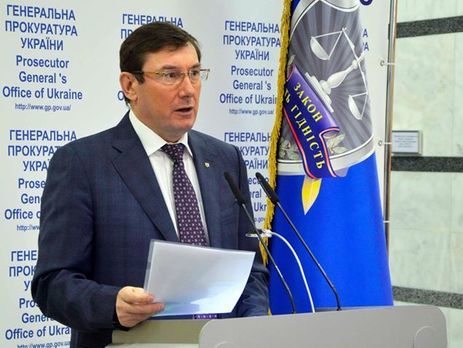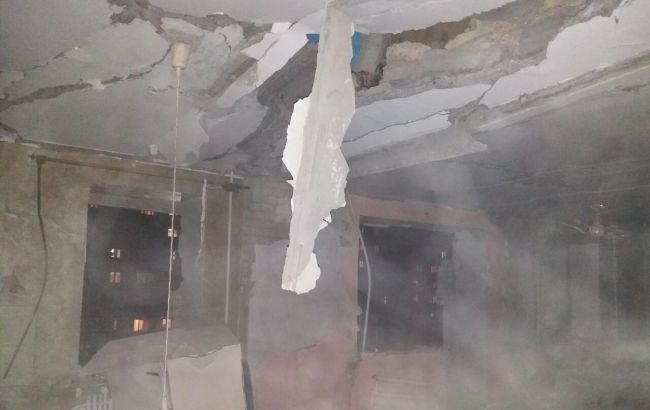Trump's slim NKorea options: Diplomacy, sanctions, force
 Donald Trump says he is confident North Korea won’t develop a nuclear-tipped missile that could strike the United States. But his options for stopping the reclusive communist country are slim: diplomacy that would reward Pyongyang, sanctions which haven’t worked, and military action that no one wants.
Donald Trump says he is confident North Korea won’t develop a nuclear-tipped missile that could strike the United States. But his options for stopping the reclusive communist country are slim: diplomacy that would reward Pyongyang, sanctions which haven’t worked, and military action that no one wants.
For more than two decades, Republican and Democratic administrations have tried carrots and sticks to steer North Korea away from nuclear weapons. Each has failed. And as Trump prepares to take office Jan. 20, the stakes are rising.
Pyongyang may already be able to arm short-range and mid-range missiles with atomic warheads, threatening U. S. allies South Korea and Japan, and American forces in each country. On Sunday, North Korean leader Kim Jong Un said preparations for launching an intercontinental ballistic missile «reached the final stage. »
Trump tweeted the following day: «It won’t happen! »
Some experts believe the North is likely to have the capability to strike the U. S. mainland before Trump’s four-year term is up.
The president-elect has given conflicting signals about what he plans to do, while stressing that China, North Korea’s traditional ally, must exert greater pressure on its unpredictable neighbor.
Some of his options:
—
DIPLOMACY
In June, Trump called for dialogue with North Korea and suggested a talk with Kim over a hamburger.
If only talking with the secretive, hereditary rulers in Pyongyang were so simple. No sitting U. S. president has ever done so.
Diplomacy with the North is a delicate dance and agreements have proved temporary.
Three U. S. administrations, going back to President Bill Clinton, have persuaded the North to disarm in exchange for aid. Each effort eventually failed, and there is deep skepticism in Congress about trying again.
A 1994 deal would have given North Korea nuclear power reactors and normalized ties with Washington. North Korea’s plutonium production paused for several years. But after it emerged the North also was seeking to use uranium for weapons, the arrangement collapsed.
Six-nation nuclear negotiations hosted by China have been on ice since North Korea withdrew in 2009.
The Obama administration attempted to restart them in 2012, early in Kim’s rule, by offering food aid for a nuclear and missile freeze. Within weeks, the North tried to launch a long-range rocket. The effort was abandoned.
Since then, the U. S. has resorted to «strategic patience» — demanding North Korea recommit to denuclearization before holding talks. Pyongyang has refused, demanding the U. S. end military exercises with South Korea and negotiate a peace treaty to formally end the 1950-53 Korean War.
American officials fear the North only would want talks to ease its isolation, and not to resolve the nuclear question.
—
SANCTIONS
International sanctions have tightened since North Korea conducted its first of five nuclear tests in 2006. But the country has adeptly circumvented restrictions on sensitive technology and money flows, and used its own capabilities to develop weapons.
Additional U. S. sanctions, beefed up last year, punish foreign companies and banks dealing with North Korea. They, too, haven’t been effective because the North’s international isolation makes it less susceptible to such pressure than a major economy like Iran, which curbed its nuclear program in 2015 after being battered by oil, trade and financial sanctions.
China’s role is critical. It dominates trade with the North and has resisted sanctions that could destabilize Pyongyang, fearing the possibility of a U. S.-allied, unified Korea emerging.
When the U. N. Security Council punished Pyongyang for another nuclear test in September, the primary goal was closing a loophole that enabled China to import North Korean coal at record levels.
The last several U. S. administrations entered office determined to break Beijing’s partnership with Pyongyang. None succeeded.
—
MILITARY
Using military force against North Korea is extremely risky.
Even before it developed nuclear weapons, the North maintained the ability to strike Seoul, South Korea’s capital, with a potentially devastating artillery barrage. Although doing so would invite a blistering U. S. response, it’s hardly a scenario any American commander-in-chief wants to contemplate.
The military option has been considered before.
Clinton considered a strike on the North’s nuclear facilities after it announced it would reprocess fuel from a nuclear reactor, providing it plutonium for bombs. Diplomacy appeared to win out that time with the 1994 agreement.
A military strike would be harder to pull off now. North Korea has expanded its nuclear and missile programs significantly, meaning more targets would have to be hit.
And regional support would be questionable.
In a recent paper, former U. S. negotiator Joel Wit said the escalation risk meant neither South Korea nor Japan would likely support a military strike. It could also draw into the conflict China, which fought on North Korea’s side against U. S.-led forces six decades ago.
© Source: http://www.charlotteobserver.com/news/politics-government/national-politics/article124439164.html
All rights are reserved and belongs to a source media.


 В турецкой провинции Измир задержаны около 40 человек, связанных с Исламским государством, которых подозревают в причастности к стрельбе в ночном клубе 1 января. Об этом сообщает Hurriyet Daily News.
В турецкой провинции Измир задержаны около 40 человек, связанных с Исламским государством, которых подозревают в причастности к стрельбе в ночном клубе 1 января. Об этом сообщает Hurriyet Daily News. 
 Печерский районный суд Киева удовлетворил ходатайство Генеральной прокуратуры Украины, избрав беглому украинскому бизнесмену Сергею Курченко меру пресечения в виде содержания под стражей, сообщает пресс-служба Генпрокуратуры.
Печерский районный суд Киева удовлетворил ходатайство Генеральной прокуратуры Украины, избрав беглому украинскому бизнесмену Сергею Курченко меру пресечения в виде содержания под стражей, сообщает пресс-служба Генпрокуратуры. 
 WORLD’S TOUGHEST RACE: SA team Toyota Gazoo Racing speaks on Stage 2 of the 2017 Dakar Rally. Image: AFP / Franck Fife
WORLD’S TOUGHEST RACE: SA team Toyota Gazoo Racing speaks on Stage 2 of the 2017 Dakar Rally. Image: AFP / Franck Fife 
 Национальное антикоррупционное бюро Украины открыло уголовное дело по факту назначения Юрия Луценко генеральным прокурором Украины за взятку. Об этом заявил на странице в Facebook бывший первый заместитель Генпрокурора Ренат Кузьмин.
Национальное антикоррупционное бюро Украины открыло уголовное дело по факту назначения Юрия Луценко генеральным прокурором Украины за взятку. Об этом заявил на странице в Facebook бывший первый заместитель Генпрокурора Ренат Кузьмин. 
 Депутат от Народного фронта Сергей Пашинский фигурирует в расследовании Генеральной прокуратуры Украины относительно событий на Майдане. Об этом сообщил глава Департамента специальных расследований ГПУ Сергей Горбатюк, передает 112 Украина.
Депутат от Народного фронта Сергей Пашинский фигурирует в расследовании Генеральной прокуратуры Украины относительно событий на Майдане. Об этом сообщил глава Департамента специальных расследований ГПУ Сергей Горбатюк, передает 112 Украина. 
 Взрыв в Сумах устроил житель многоэтажного дома пенсионного возраста, подорвав собственную квартиру, в результате чего погибла женщина. Об этом сообщает отдел коммуникации полиции Сумской области.
Взрыв в Сумах устроил житель многоэтажного дома пенсионного возраста, подорвав собственную квартиру, в результате чего погибла женщина. Об этом сообщает отдел коммуникации полиции Сумской области. 
 Решение суда о заочном аресте бизнесмена Сергея Курченко дает возможность выполнять задачи уголовного производства в виде обеспечения международного розыска. Об этом сообщил прокурор Генеральной прокуратуры Адриан Лупу. Его слова передает канал » 112 Украина «.
Решение суда о заочном аресте бизнесмена Сергея Курченко дает возможность выполнять задачи уголовного производства в виде обеспечения международного розыска. Об этом сообщил прокурор Генеральной прокуратуры Адриан Лупу. Его слова передает канал » 112 Украина «. 
 January 4, 2017
January 4, 2017
 В Закарпатской области из-за сильного снегопада сошло две лавины.
В Закарпатской области из-за сильного снегопада сошло две лавины. 

